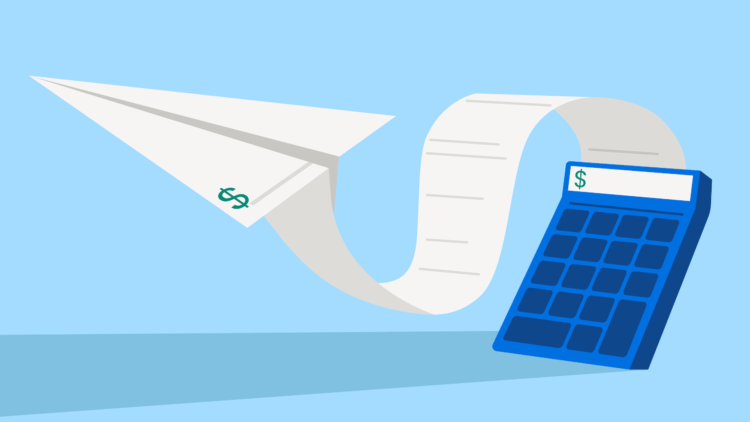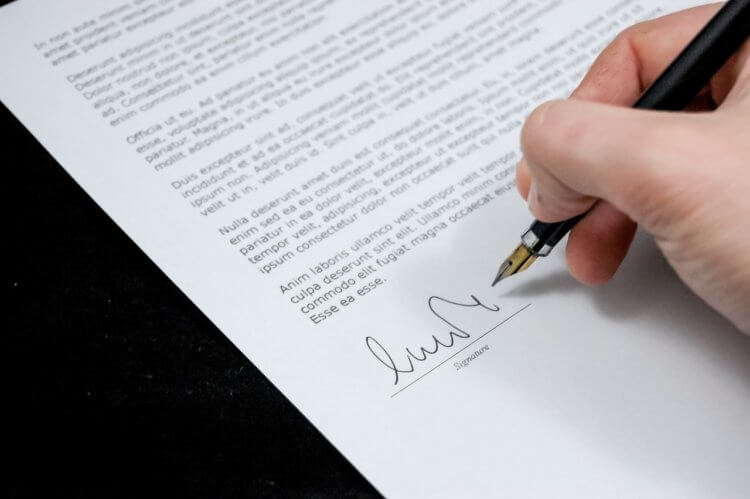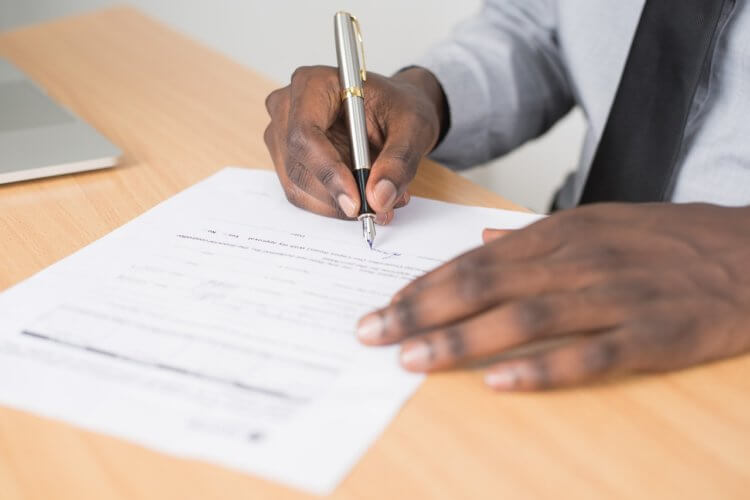

All lawyers will sometimes struggle to get the clients to pay them. Furthermore, chasing after clients to settle debts is awkward and challenging. In that case, a clear lawyer debt collection letter can help law firms improve collections efficiently and professionally.
According to Clio’s 2020 Legal Trends Report , attorneys only collect for 88% of the hours they invoice on average. This means 12% of the hours that lawyers work and invoice for are never paid—which is valuable time and earned revenue lost.
Whether you call it a lawyer debt collection letter, a letter of demand, a demand letter of payment etc., the concept is clear. A lawyer debt collection letter requests a client to pay for an outstanding invoice balance. This type of letter can help resolve client debts by opening communication to find a fair solution for your client and your firm. An attorney debt collection letter can also potentially support your case should you have to take further action to get paid.
In this blog post, we’ll outline the basics of a lawyer debt collection letter—including how it can help lawyers, what to include in your letter, and the dos and don’ts you should be mindful of. You can also use the enclosed attorney debt collection letter sample to create your own template.

A debt collection letter is a formal notice that businesses—including law firms— give to a client who hasn’t paid their bill by the agreed-upon date. This type of letter informs the recipient of their outstanding debt, requests that they pay by a certain date, and lets them know what will happen should they fail to pay.
Typically, a lawyer debt collection letter may be used to:
It’s incredibly frustrating to hold up your end of a contract with a client, then not get paid. Instead of writing off unpaid invoices from non-paying clients, an attorney debt collection letter formally gives clients a clear opportunity and motivation to pay their debt. Here are three key ways that debt collection letters can be useful to lawyers:

It’s possible a simple oversight or miscommunication could have caused the client to not pay your law firm’s invoice. In these cases, sending a clear attorney collection letter to a client can quickly and professionally resolve the issue by letting the client know what’s outstanding.
Before reaching the point where a collection letter is necessary, lawyers should ensure that they’ve set up a sound system for their law firm billing . The goal for attorneys is to get paid for the work they complete—while maintaining good relationships with their clients. Before a debt collection letter is necessary, lawyers can take steps to ensure their billing systems are as efficient and client-friendly as possible.
As Clio’s 2020 Legal Trends Report shows, for example, 65% of consumers prefer to pay using electronic payments like credit cards, debit cards, or online payment systems. Using software like Clio Manage allows clients to pay their legal bills via credit card online. Lawyers can make it easier for clients to pay with online payments. You may be surprised and how online payments can reduce your need for debt collection letters.
However, if clients are running behind on their bills, lawyers like yourself need to know when payments are missed so you can deal with the situation promptly. For example, by using Clio Manage’s billing features , lawyers can keep track of client payments. This way, lawyers will know when a collection letter is necessary.

Sometimes, a client may short on cash. They may have the intention to pay you, but just can’t pay at the moment. In this challenging situation, they might not know how to communicate this.
In these instances, a debt collection letter from their attorney can initiate a payment negotiation and create a solution that works for the client and the attorney.
For example, a payment plan where the client pays incrementally over time, might not be your first choice. But a payment plan can be a solution that ensures you get paid in a way that your client can accommodate. Your client will also recognize that you’re putting their needs first, which can in turn preserve a more positive relationship with the client.
Unfortunately, in some situations, you may decide to pursue legal action if a client refuses to pay. For example, you may be able to report the non-paying client to a credit reporting agency , hire a collections agency, or file a lawsuit.
In these cases, you may use a formal lawyer debt collection letter as proof that the lawyer made an effort to let the client know about their outstanding debt—and that the client did not pay.

The exact content of your debt collection letter will vary depending on each specific client situation. You also need to check any applicable rules for your jurisdiction. Consider including the following:

By creating a debt collection letter template, you can easily create a custom letter for any clients with outstanding payments. Having a template helps ensure your lawyer debt collection letter includes all essential details.
To show you what a debt collection letter can look like, this debt collection template shows examples at different stages in the collections process. This online template bank offers examples of debt collection letters for a variety of different situations.
Below, we’ve created a debt collection letter from an attorney sample as a reference point. Be sure to adapt it to your firm’s needs and remember to check specific rules regarding lawyer debt collection letters with your respective jurisdiction.
Jane Lawyer [ Lawyer name ]
Jane Lawyer Law Firm [ Law firm name ]
123 Main Street, City, State, 90210 [Law firm address]
Joe A. Client [ Client name ]
456 1st Street, City, State, 90210 [ Client address ]
July 14, 2022 [ Date of Letter ]
Dear Mr. Client [ Client Name ],
I’m writing to inform you that your balance of $1,000 [ $ Amount overdue ] for invoice # 2010101 for legal services on your malpractice claim against Dr. Z, which were completed on May 20, 2022 [ Invoice number or identifying details ] was due on June 1, 2022 [ Payment due date ], and is now 43 days [ # of days currently overdue ] late. Please note that, as per our engagement letter, an interest charge of 1% per month will be charged on any balances not paid within 30 days of their invoice date. [ Provide any details from the contract or engagement letter ]
As such, your total current balance due is $1,010 ($1,000 plus $10 for one month of interest at 1%). [ Provide total amount owing]
I would appreciate it if you could please respond to this letter and submit your payment by July 31, 2022. [ Provide next steps and request payment by a specific date ] If there is a problem paying this outstanding balance or paying it in full at this time, please contact me to discuss an alternative payment arrangement. [ Offer an alternative, if applicable ]
Please be aware that if I don’t receive a response or payment by July 31, 2022 , I may choose to take further action in order to pursue this overdue payment. [ State the possible consequences ]
Thank you in advance.
Enclosed: A copy of invoice # 2010101 and a copy of your signed engagement letter [ Enclose any relevant documents ]
One final—but important—note on the subject: As with any formal legal correspondence, it’s your responsibility to know the rules of debt collection in your area and be careful to stay compliant.
For example, federal law like the Fair Debt Collection Practices Act (FDCPA) limits how third-party debt collectors act when attempting to collect debts. There may also be specific rules regarding debt collection in your state and local area.
Any debt collection letter that you plan to send—and any actions related to debt collection in general—must be compliant with applicable official debt groups. Again, the rules will vary depending on your jurisdiction and geographical area.
Check the rules that apply to you, and always abide by them when communicating with clients.
Unfortunately, chasing outstanding payments from clients is sometimes an inevitable part of running a law firm. While all non-paying clients owe you for the agreed-upon and completed legal services you provided, there are sometimes reasons why clients don’t or can’t pay their bills.
The first step to avoiding unpaid client bills is to set up a solid collections process. That way, you can make it easy for clients to pay in the ways that best suit them. If you still don’t receive payment, you may want to consider creating a professional, clear, and straightforward lawyer debt collection letter.
Sending a debt collection letter to a client can resolve potential miscommunications and make it clear what balance is owed. It can also help open communication if a client requires a payment plan. However, before creating or sending any debt collection letters, lawyers need to check, know, and abide by the rules for debt collection in their area.
Once you know the rules, you can research and create your own debt collection letter template. Then, when you’re in a situation where a client refuses to pay, you’ll be prepared to move forward. With a debt collection letter, you can spend less time on the collections process, while collecting more for the legal work you’ve already done.
Note: The information in this article applies only to US practices. This post is provided for informational purposes only. It does not constitute legal, business, or accounting advice.
A debt collection letter might include one or more of these purposes: Informing debtors they owe you money, establishing a clear payment process, and/or informing them on a legal proceeding related to their unpaid debt.
We published this blog post in June 2021. Last updated: April 19, 2023 .